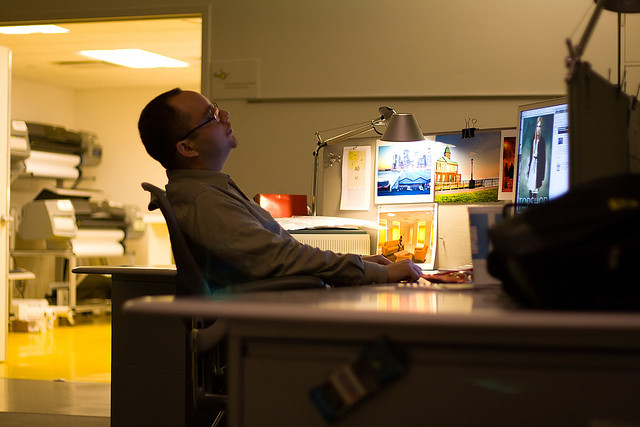Sleepwalkers: the slow wave sleep stage in a state of low consciousness performing activities that are usually performed during a state of full consciousness.
“Am I dreaming?” A question I’d ask myself often during my pre-adolescent years.
My life was spent in a perpetual haze, daydreaming to get me through the harsh reality that was my world. It was one way of coping—conjuring up fantasies offered relief; other times it made things worse. I began to wonder if I was walking this world half-asleep.
My inquiry grew and I started noticing others and watching their patterns. I became convinced no one is ever fully awake.
“We’re all asleep in a dream together and nothing is real.” The thought made me shudder. I forced myself to stop thinking it. What we resist persists. There was no letting go. Not until I sat, embraced the notion and fully understood what it means to be completely awake.
Daydreaming has gotten a bad rap.
But daydreaming can be beneficial in many ways. It can help us manage conflict, boost motivation, create inspiration, maintain relationships and even help us relax. Thinking about a vacation may actually trigger the same feelings as being on one.
So what’s the issue? We get tripped up when we’re living our lives in our daydreams—always in thought without the awareness that we’re in thought. The dreaming becomes reality, the lines merge and we create an existence that mostly isn’t real—lost in a fog that has us sleep walking through life.
While we’re clinging to our thoughts, life moves on, speeding past us without notice. We’re perpetually stuck in a rhythm that has us bound to routine and ritual. If we’re not meeting life’s demands, rushing from one place to another, we’re wedged in a state of mental chatter, repeating the same story and wanting things to be different.
“Suffering is wanting things to be different.” ~ Buddha
Things Must Get Done
This moment is rarely ever enough; we’re virtually always leaning into the next before noticing the one we’re in. The prize isn’t here, it’s there. Things must get done first.
Usually a problem to be solved or an agenda met, and if there isn’t, our minds will surely create one. We’re depending on things to be a certain way—believing that when we meet our expectations we can ease into living.
“If only I had more money, a partner, a better body, a family, a house, a promotion, if only I can get through this….then I can relax, be happy, enjoy the moment.”
We’re not Good Predictors
As Tara Brach states: “We’re not good at predicting and we organize our lives around how we think things should be.” The things we assume will make us happy generally don’t or if they do it’s not permanent. Normally within five months we go right back to our set point.
Expectations Never Get Met
The more we want, the more we keep wanting.
As soon as we meet one expectation we create another. Our minds want something to do, to solve. We fixate. We’re convinced that we need to clench, resist, and keep ourselves on guard, not only to protect ourselves from threats but to give our minds something to do. We need to keep that ego part of us functioning and alive.
If we release the clenching it’s like we’re free falling, we’re groundless with no sense of control. But we also have an innate wisdom that intuits our deep understanding of life—we have a deep longing to let go, we want to be free.
So there’s this conflict that emerges between our ego’s conditioning of wanting to control, and our intuition wanting to be free—Pema Chodron calls this the Big Squeeze.
Solution?
In a mindfulness practice we begin to notice our patterns and how the mind and ego work. We become conscious of our constant gratification pursuit and our need to avoid any potential threat. And even when we meet our greatest desire we fear its loss or we long for more. It’s a perpetual cycle that doesn’t have to continue. The pattern can be changed. But it’s only possible in the space of noticing. In this state we are truly awake. That is where our power lies. There we can choose to trust and find safety in letting go.
“The primary cause of unhappiness is never the situation but your thoughts about it.” ~ Eckhart Tolle
When we’re caught in the cycle of “If Only” thinking we’re sleep-walking, in a trance, not fully awake. We’ve left the only source of true gratification—the present moment.
Think back to times when you’ve fully embraced life—enjoying your child (or your childhood), skiing, hiking, dancing, listening to birds, watching the sunset. It wasn’t what you were doing that brought you peace, happiness and ease. In truth it’s those small moments that bring the most pleasure. It’s the moments when mind meets body. It’s awareness becoming aware of itself.
That, my friends, is freedom. Not a million-dollar home, a perfect partner, or high-powered position. Freedom from the trance is the prize. Perhaps we’re all chasing the wrong dream.
Our inner wisdom beckons us to wake-up. We have the opportunity shake the trance, to walk this life aware, awake and fully conscious—and we can do it time and time again. The process begins by simply choosing to open our eyes.
Love elephant and want to go steady?
Sign up for our (curated) daily and weekly newsletters!
Editor: Catherine Monkman
Photo: Jason Kuffer/Flickr











Read 4 comments and reply